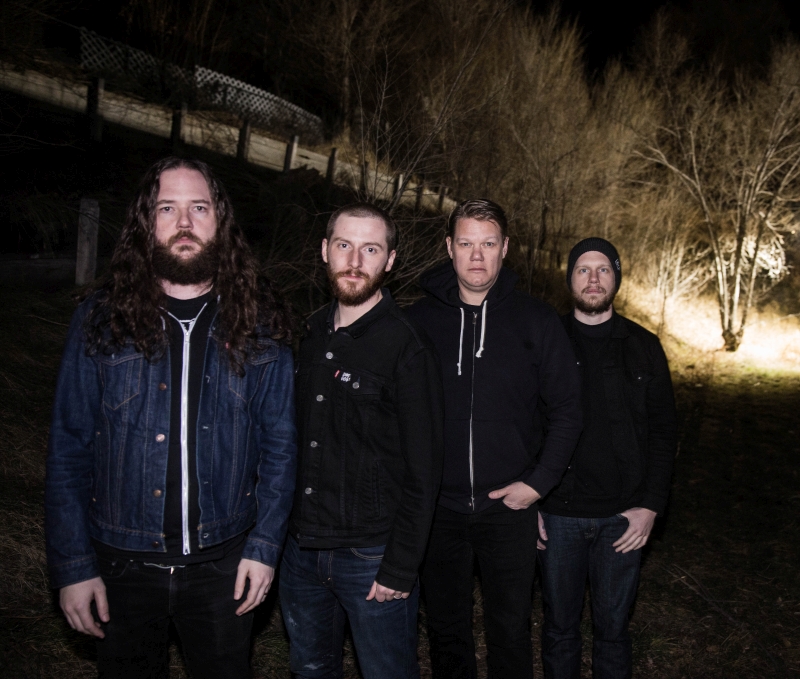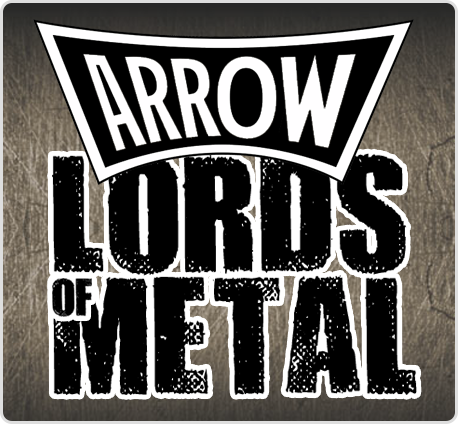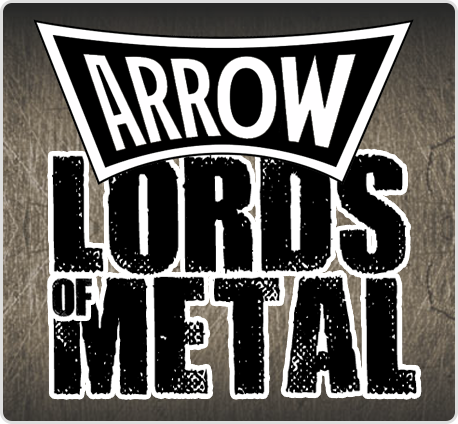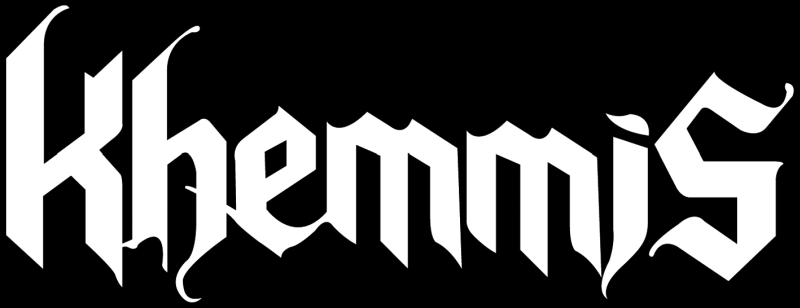
Ben Hutcherson: “Life is not just one thing and it would be disingenuous of us to claim otherwise and present life as a horrible dark affair. It is most of the time, but not all of the time.”
Khemmis volgen we sinds het begin met een meer dan gewone interesse. Het vorige full length album ‘Desolation’ dateert van 2018, maar in april 2020 brachten ze ook de ep ‘Doomed Heavy Metal’ uit die onze honger wist te stillen met zijn 38 minuten speelduur. Het moge duidelijk wezen: ook deze puike Amerikaanse heavy/doom metal band heeft de afgelopen periode naarstig benut om artistiek bezig te blijven. Daar ging tijdens de lockdown een lange periode van bezinning aan vooraf. Het resultaat is het vierde album ‘Deceiver’ dat erg duister en zwaar klinkt, maar altijd de deur op een kier laat voor een beter leven. We hadden een diepgaand gesprek met gitarist en man van de extreme zang: Ben Hutcherson.
Vera Matthijssens Ι 29 november 2021
How are you doing?
(very enthusiastic) I am doing alright. I just went down to have a little snack downstairs, I went out with our cat for a few minutes in between interviews, but it has been a nice day so far. What about yourself?
I am fine, thanks and my cat just woke up from laying in the coach. Congratulations with your new album ‘Deceiver’. It has some stunning music on it again…
Thank you very much. We are very excited to release this album and very excited that people finally are going to hear it. Any band is going to say that they are proud on their new album – they should be at least – but we are extremely proud of what this album means to us and what it represents for us as a band, as people, as friends and it is just excited to speak about it.
I found out that this album happens to be the result of three years hard work. I guess you did everything very cautiously?
Yeah. We did not plan on taking that long, but like with everyone, when 2020 happened, we had to take it with the good and the bad and for us the silver lining in the clouds of the last two years was that it gave us the time to focus on song-writing and ask ourselves what this band means to us, that kind of questions… but it also forced us to confront some things in our own lives that haven’t been questioned or interrogated in our lives for a long time. There is nothing else than being locked in a house and not to leave your house for the time of two years. It makes you ask yourself some tough questions and figure out what matters in life. There was a very good chance that this album wasn’t going to happen, you know. There was a stretch in time when it seemed that there was not going to be more Khemmis. So when coming out on the other side and not only still be a band, but have this rediscovered joy in creating music together and in just spending time together, I feel more connected with those guys than I have in years. Not only as a band, but also just hanging out. I mean, until the whole world fell apart, we just hang out for the sake of hanging out, now we rediscovered the joy of doing that and be brothers who make music together and I think that the struggle and the joy both can be noticed on this album and they both define what these songs sound like, how these songs come across to the listener.
That was maybe a positive thing about the lockdown: people started to think about their lives and the reason why they are doing things…
Yes, absolutely. Again, you hate to say anything positive about the last two years, because it has been hard for everyone, but, like anything else in life, it is a matter of perspective and it is a matter of balance. I think that comes across in the sort of construction of this album, that although this is our darkest album and our heaviest album if you will, it isn’t just that, because of that there are still these moments of triumph, those moments of joy that come through. It is like everything, whether it is food or art or music… it has to have some variety. If it is all the same flavour, then it is boring. And maybe even more important than that: it is not one-sized. Nobody is just one thing, life is not just one thing and it would be disingenuous of us to claim otherwise and present life as a horrible dark affair. It is most of the time, but not all of the time.
That is true. Let us go a bit back in time. When we spoke about the previous album ‘Desolation’ in 2018, you had several gigs and festivals planned in the US and hoped for a European tour. Did you manage to do that in the wake of ‘Desolation’ before the world stopped turning?
Yes. We came to Europe for the first time in 2018. In April/May we did a couple of shows. We did Roadburn, we did a club show or two and we came back in 2019 for a short run. A string of shows in Germany, a couple in the Netherlands, but not a whole run. We have only done, let’s say, a dozen of shows in Europe so far. We had a couple of tours scheduled last year; of course all of those got cancelled. We are scheduled to come over at the end of April 2022 for Desertfest London. Who knows there will be more shows around that? It very much depends on the covid-19 situation and the border situation. Right now it is so hard for US citizens to come over, almost impossible at the moment, so we are in the stage of waiting and keeping our fingers crossed. Let’s hope that it all going to be happen next year, but everything is so up in the air at this point. We just announced a couple of shows here in the US and we hope that those can happen, but we have to keep our fingers crossed and hope for the best.
What can you tell about the lyrics this time? Why are they so dark?
Our lyrics have always been personal. We always have been writing about our own experiences, our own lives. That is true here as well, but on this album we wanted to make it a little bit more direct, a little less mysterious. I mean, we are still using a lot of metaphors and a lot of creative imagery because no one wants to hear a metal song just saying: ‘ah life is horrible and I looked to the sky and I wonder why I exist.’ That gets on my nerves, but at the same time we wanted to be more direct, because we had these very profound moments over the last couple of years, of honesty with each other and with ourselves. Honesty is such a crucial part of what we do. Not shying away from the feelings or themes we are approaching as we write music and so, given that we had to confront these questions of ‘who are we?’ and ‘what’s the point of all this?’ and ‘are we destined to sort of relive the sins of our mothers and fathers?’ and that kind of stuff. It felt disingenuous to hide behind metaphors and not make it clear what we were talking about, so that level of clarity, that level of transparency adds a certain darkness to it, because it makes it less subject to interpretation. People tend to read the lyrics and say: ‘oh this is a fantasy story’, no, this is about the horrors of existence. As you said, this has been a theme across our entire catalogue, but to really capture where we were every moment of the writing process, whether it is the early stages of brainstorming or going to the studio. It did not shy away from that darkness. We are not trying to put a happy face on everything, although that everything is not always dark and suffering is not the only facet of life. It doesn’t mean that everything is always blue skies and rainbows either, but the joy we find in our lives and the happiness we find in ourselves or with others, is always going to be tempered by the other stuff that we experience. We thought it was important to reflect that in the music and in the lyrics as well. It is going to be a little bit more aggressive and a little bit more sombre I think, at times. With the mellow passages and the slow passages, to really let them exist as they should and not try to force them to be something else.
We have this yin and yang in the vocals too. Your harsh vocals rule and the clean ones remind me a bit of While Heaven Wept…
I like the imaginary of the yin and yang theory concerning the vocals. Mine have always been a counterpoint to Phil’s. I also tend to sing the more depressive lyrics. I think this time around I may have some of the most uplifting lyrics on the album. It is all about this contrast, no matter what you pick up from that. There will always be people that wish we’d had only clean vocals and there will always be people that wish we’d only had harsh vocals. That is about honesty too. We like albums that have both of those vocals. When we are writing an album, we write an album that we want to hear first and foremost and the amount of harshness or smoothness is always going to be a reflection of where we are, creatively, when we are working on an album. Because we could easily make the next album make a black metal album, or we can make it an acoustic album or a drone/doom album, because we have gotten to a point where we know what the art of Khemmis is and now our excitement comes from finding the different sort of paths towards that sound and towards that feeling and it doesn’t have to sound like ‘Hunted’ or ‘Desolation’. We trust in ourselves and each other that we can find new and exciting ways to still take the listener on an emotional journey.
With such diverse vocals you can cover a wider range of emotions, even only vocal-wise, isn’t it?
I absolutely agree. Phil and I have both worked very hard to get better with our voices. We are now not only be able to say that we have harsh and clean vocals, but to make sure that my vocals can cover an increasingly wider range and sounds and that his can cover a wider range of sounds to really hit those kind of emotional moments in different songs.
In the former interview it was funny that Phil was a bit unsure about his vocals, because he never sang in a band before…
Yes absolutely. People are always surprised when they find out that Phil never sang in a band before this. Now he is an amazing singer, it is such a comfort to have him in the band. He is one of my dearest friends. I played music with a lot of people, but Phil is one of the silver linings of the last two years, when I realized that we have this bond creatively where we can speak the same language musically without having to explain it to each other, a sort of running joke. When you talk about people: ‘they finish each other sentences’, well, with us, we finish each other’s riffs and it is really cool to hand over a creative idea or head over a drum fill and finally we take each other’s creative ideas in different directions, but that always makes sense to the other one. It just feels like a logical extension of what you want to hear anyways. It is something I feel very grateful for.
I even remember that in one lyric happened to be a contribution of both of you…
Yes and that is another thing that has evolved over the years too. Neither of us says: this are the lyrics for this song, but we trust each other enough to edit each other’s lyrics to make sure that it fits in a song or just to take suggestions from the other one. Like there are moments on this album where he is singing lyrics that I wrote or I am screaming lyrics that he wrote. That has happened before, but it happens in a natural way, rather than saying: ‘this is how the song goes’. It is a matter of how we blend our two voices through the years and I think it is a really exciting evolution of the band.
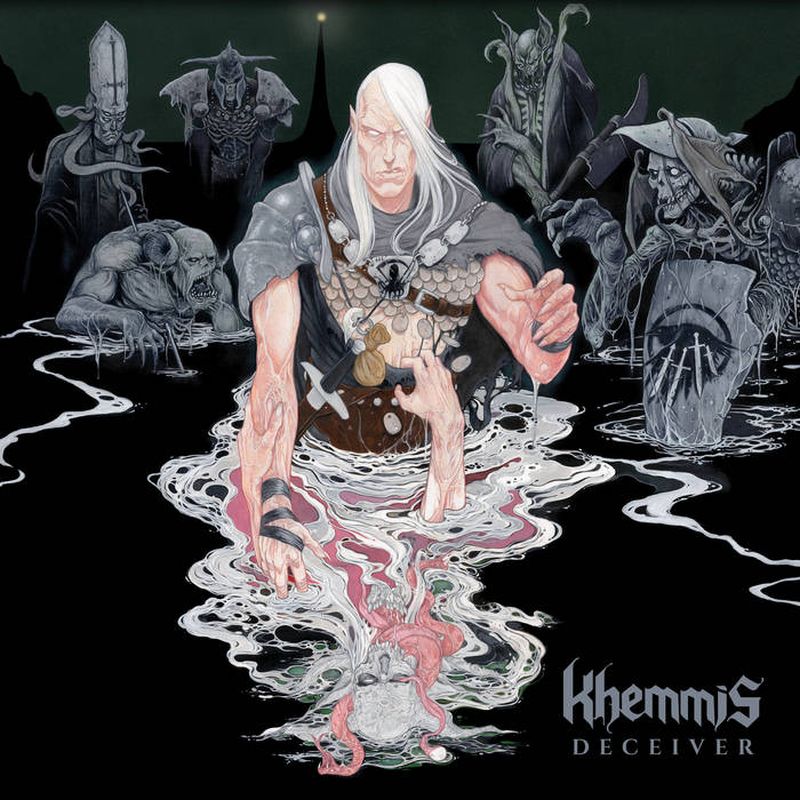
Was it hard to find the title this time? It is only one word again…
It wasn’t hard. Phil came up with this one and the only kind of difficulty around it was, initially we were unsure about having it starting with a D, as ‘Desolation’ started with a D. We tried some different one word titles, but we came back to ‘Deceiver’, because it fit and it made sense and it had to be something you’ll remember. And I think the idea of deceiver – for those who want to dig deeper into the imagery and the lyrics – the idea of deceiver can connect with people at many number of levels. If they want to really dig in to what we are singing about, this idea of ‘we are deceived by society, by culture and we do not deserve joy and happiness’ and that we deserve to suffer so that we can suffer more and we deceive ourselves into thinking that we are nothing more than the history of our families and our own struggles, causing addiction and mental illness. The deceiver makes sense in that respect and if people want to think about it in a way referring to Judas in Christianity, that is awesome too. There are so many levels that people can connect on and one thing we always want to have is a sort of classic or timeless appeal to what we do. That includes the album art, that includes the album title and the song titles. We always want to feel that it is more than the sum of its parts. I am glad that the album title sticks out to you, because we are excited about it.
It is said that one can hear some new influences on this record. What was new for you in some of the songs?
The interesting thing about that, is that the influences have always been there, whether we were thinking about a sort of mid-nineties wave of death metal or the second wave of Norwegian black metal or traditional heavy metal like Iron Maiden and Judas Priest… all those influences were always there. The classic rock stuff with Thin Lizzy and ZZ Top…. It is just a matter of where we are creatively at a given point and what is resonating with us. I mean, I discovered At The Gates and Immortal when I was 17 or 18 and I am about 37, so they have been part of my musical DNA for more than half of my life. It is always kind of funny when people review our earlier albums, they hear the melodic stuff and they say: oh they are very influenced by the Peaceville three or another doom band. But the reality is that we were always playing melodic death metal riffs, we were just playing them at one quarter of the speed. What I think is changed, is a confidence in ourselves to say that if we have this riff like for instance the opening riffs of ‘Avernal Gate’, we don’t have to slow it down, we don’t have to change it. If this feels natural, then let this be the way the riff is. In fact that riff was a sort of creative starting point for the record. I have written that in… (thinks) 2018 or 2019 I think. We came around in 2020 and Zach (drummer – Vera) pointed that riff. He said: ‘this riff needs an At The Gates thrash drum beat, that is the heart of this album’. Let us trust ourselves to do this the right way and whenever we feel that those influences sort of rear their heads, let us trust ourselves to do that. We have a kind of black metal section at the end of that song, very slow blastbeats, but still… We got the mid section of ‘Living Pyre’ there is a very strong melodeath influence, in ‘Obsidian Crown’ we have a mid tempo In Flames kind of thing, There is a lot of sullen black metal, chord progressions, even in ‘The Astral Road’, which is a very up tempo song. The pre-chord section is a straight up black metal riff. It really was a matter of feeling comfortable and confident enough to have those elements in exist and just embrace them for what they are.
‘The Astral Road’ is one of my favourites, also due to that bluesy guitar soloing…
I really love Phil’s solo there. I did most of the guitar solos in the band, but when Phil does a solo, his style is just entirely different. When I wrote the beginning of ‘The Astral Road’, he said: ‘I think it needs like a David Gilmour or a Pink Floyd thing’ and I said: ‘Brother, I want you to dive into it, I want you to do it like that’. Tracking that solo in the studio was a lot of fun, because Dave Otero, our producer and I were there and we were cheering him up. We were pushing him to get the emotion in that solo, because that solo really sets the tone of what is happening, full of emotion. I love the way it came out, I think he absolutely crushed it. Such a powerful moment.
Nice that you mention Pink Floyd again…
I think one of the many things that I love about this band and that I am grateful for is that we are all very influenced by sixties and seventies rock, all sorts. Like I love Jethro Tull and I love Steely Dan. These are two of my favourite bands. You don’t hear them mentioned in the context of metal very often, but especially on this album, there are some moments where I play some chords that are very atypical in heavy metal. I am not schooled enough to know exactly the name of these chords, but I know those chords from learning Steely Dan songs. They have this almost jazzy feeling in it. When you listen to ‘Living Pyre’, on the middle section right before the solo and towards the end, these are big jazzy chords that come from that sixties and seventies rock world. Much more so than extreme metal related.
Interesting, because one of my questions was: what are your musical roots?
It is all there. It goes from the melodic death and black metal stuff to elements of the American death metal. For instance my second solo in ‘Shroud Of Lethe’ is me trying to do my best impression from Trey Azagthoth from Morbid Angel. It is a weird spacey solo. There are moments in that song and in ‘House Of Cadmus’ where we were thinking of… a lot of influence came from bands called Weakling and Asunder. John Gossard, the way he thinks about guitar and what he did with Weakling, huge influence from Asunder too on the band. We make sure that these influences never feel tacked on, but instead trying to just paint with more shades of the colours that we already use. So it is a matter of adding extra guitar layers and adding some sort of tonality that maybe is a bit more evil, or a bit more melancholic, just trying to embrace the diversity of what we are listening to. When we were writing the album, we were listening to as much black metal as jazz like John Prine. When John Prine died, he was all I was listening to for a couple of months. You may not think that John Prine and heavy metal have been connected, but it is all about that sort of emotional honesty. There is something about this country folk singer-songwriter – what ever you might call his music – that was very honest and very unafraid to just be and I think we tried to in our own way try to channel the same attitude. Obviously we have more amplifiers and things like that, but it is all about what at the heart of it and the heart of it is always going to be equal parts extreme metal and everything else, whether it is classic rock or country music or whatever. Phil is a big fan of Captain Beefheart and he brings in some ideas from that spirit. We feel comfortable enough to embrace all those things and trust that once we put those influences through the Khemmis machine, it is going to come out sounding like Khemmis.
Where is Dan? (Daniel Beiers – Vera). Your bassist is gone in 2020, I think?
He left the band at the end of last year. As part of a lot of the soul searching that we all had to do, he realized that he needed to leave the band and focus on being a husband, and being a father. He could not do these things as intensively and as powerful as he needed to if he was also in the band, because of where his emotional health was at that point. It was a difficult decision all the way around, but it was absolutely necessary for the band to keep going on and also for him to be able to focus on his life and to be the version of himself that he most needed to be. That was almost a year ago. We now find ourselves in a different situation and have been playing live with a guy called David Small who also plays in a death metal band with me. David is an absolutely phenomenon musician, a great all around dude. It is a real joy to play with him. The first time he got to jam with us, he already learned half of our catalogue, so we were impressed.
For the previous album, you started to create official video clips. This time we have two video clips so far. What can you tell about this kind of art?
It is nice to work with Nuclear Blast. It has allowed us to do a lot of things that we could not do before. We had to spend a lot of time in the studio this time. We had a kind of countdown towards the release of the clips. The one that is just released, was done by Costin Chioreanu, this Romanian artist who is absolutely brilliant. We sent him a couple of ideas, but we wanted him to do his thing. When he sent it over, it just blew our minds. It is incredible and the way he interpret the lyrics… we actually talked with him about it after he sent the video over, that he felt very moved by the song and that he found his own personal connection to the music and the lyrics. We love that! One of the coolest things that we’ve got to do in this band, is to collaborate with people. People that do our merchandising, or do our music videos. We have an attitude like: ‘this is our music, what does it mean to you?’ and then let them interpret it through their drawings and paintings or whatever… And in this case the video from Costin was just absolutely incredible. We are just over the moon with it.
To round off what are plans for the near future?
We have one more video that we are working on. It will be released on the release date of ‘Deceiver’, on the 19th of November. We got a bunch of other things coming up, like some cool behind the scenes footage and we will be playing some shows in the US. We’ll be playing in New York at the end of the year and then going out for a few gigs in January. We will be coming to the U.K. in April. I don’t know what the plans are for the rest of Europe for that trip, but we will definitely be back over in Europe later in the year for something longer, because we miss all of our European fans.
